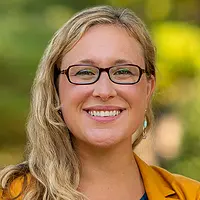Findings from RTI’s Clean Water for Carolina Kids program pointed to the need for a revision to lead standards for drinking water
RESEARCH TRIANGLE PARK, N.C. — A bill passed this week in North Carolina revises the definition of a “lead poisoning hazard” from 15 to 10 parts per billion and updates the state’s childhood lead poisoning prevention law, which is designed to ensure that young children and pregnant women are better protected from the risks of lead exposure. The revision comes in the wake of findings from RTI International’s Clean Water for Carolina Kids Program that stricter lead standards in drinking water would benefit children in North Carolina.
“Recent findings from the Clean Water for Carolina Kids program show that drinking water is a lingering hazard in the effort to eliminate childhood exposure to lead, a neurotoxin that affects cognitive and behavioral development,” said Jennifer Hoponick Redmon, MSES, MPA, CHMM, a senior environmental health scientist at RTI and program director for Clean Water for Carolina Kids. “As there is no safe level of lead exposure for children, any reduction in the lead hazard level is a win for children’s health.”
Of the more than 3,000 centers that have participated in the program since June 2020, approximately 9% have one or more taps at or above 15 parts per billion, the prior lead hazard level. An additional 3.5% of centers had a tap at or above 10 parts per billion, but below 15 parts per billion, which under the old standards did not necessitate action to reduce lead levels.
It is expected that a reduction in the lead hazard level from 15 to 10 parts per billion will better protect the health and well-being of the approximately 30,000 young children attending child care centers with elevated lead at the tap. The statute is also expected to benefit North Carolina by reducing health care costs, special education costs, crime, and avoiding losses in lifetime earning potential.
“Once we find where the lead is at the tap, it is important to take action to fix it. Often, preventing lead exposure from drinking water in North Carolina includes low-cost solutions such as replacing a faucet fixture to a new stainless steel one, flushing water regularly, or installing and maintaining a water filter that is certified to remove lead,” said AJ Kondash, Ph.D., a research environmental scientist at RTI and the program coordinator for Clean Water for Carolina Kids.
About Clean Water for Carolina Kids
The NC Childhood Lead Poisoning Prevention Program has a longstanding role in reducing childhood lead poisoning in North Carolina from various sources of lead including leaded paint and gasoline. Since 1990, the lead hazard level in water requires action to get the lead out of drinking and cooking water when it is identified in health care and child care communities. In 2019, a new statewide rule required testing drinking and cooking water at the tap for licensed child care centers. The grant-funded Clean Water for Carolina Kids program, which is a partnership between RTI International, the NC Division of Public Health, and the NC Division of Child Development and Early Education, has tested more than 3,000 licensed NC child care centers for lead in drinking and cooking water since 2020. To learn more about the program, please visit: www.cleanwaterforcarolinakids.org.
About HB272
For more information on the final bill, HB272, click here. The bill takes effect on Dec. 1, 2021. Note that the bill does not relate to water utilities who are regulated under the federal Lead and Copper Rule. Note that child care centers that participated in the grant-funded Clean Water for Carolina Kids program have 3 years from their initial testing date to conduct repeat testing.

To request an interview, contact our Media Relations team.


